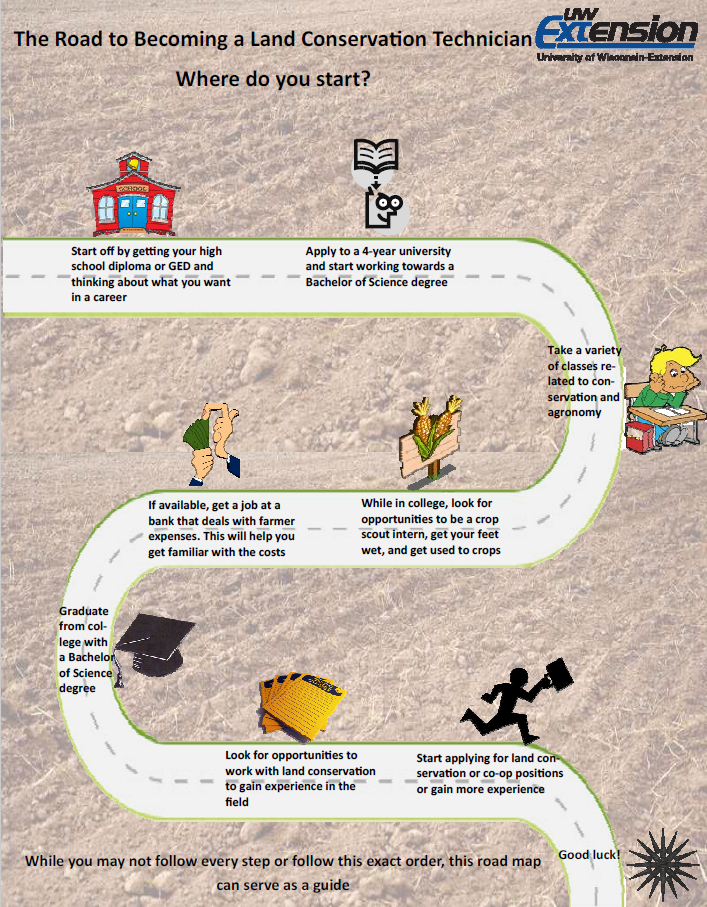What is the most rewarding part of this job? The best part about this job is being outside and not cramped up in an office for 40 hours a week. You get to be outside in nature and know what is going on in the fields. This job also involves meeting a bunch of new people and farmers in the area.
Background Information: This career involves working on projects to promote farming practices like cover crops and no-till methods for farmers to try and increase soil biology and infiltration. In this job you will most likely work with large dairies and cash crop farms to test new crop planting methods against conventional methods. A land conservation technician’s goal is to convince farmers to use farming practices that are more beneficial for the environment. Technicians may also serve as manager for research projects, which involves working with the farmers that have chosen to use the new planting methods and keeping track of what is working and what is not. Technicians are also involved with different committees that involve land conservation.
Experience/Education Needed: You will need a high school diploma or GED and a Bachelor of Science degree in biology, agronomy, or conservation related field. For this particular career, you may also need to get special certifications in nutrient management planning or other areas.
Average Salary Range: The average salary range is from $30,000 to about $85,000 depending on your work experience, the amount of time you are there, and the effort you put into the job. Private consulting is also a great way to gain more experience and increase your salary.
Career Roadmap: These are the steps one might take to get to this career.
First, graduate high school or get your GED. Get your Bachelor of Science degree, while making sure to take classes such as conservation, agronomy, soils, plants and others that are related. While in college, look for an internship as a crop scout, this will provide you with experience and help you learn how to identify certain things like crops, weeds, and insects. It may also be beneficial to intern or work at a bank that works with farmers and their expenses. This will help you to recognize where the money comes from and how to finance future projects related to conservation and farming.




